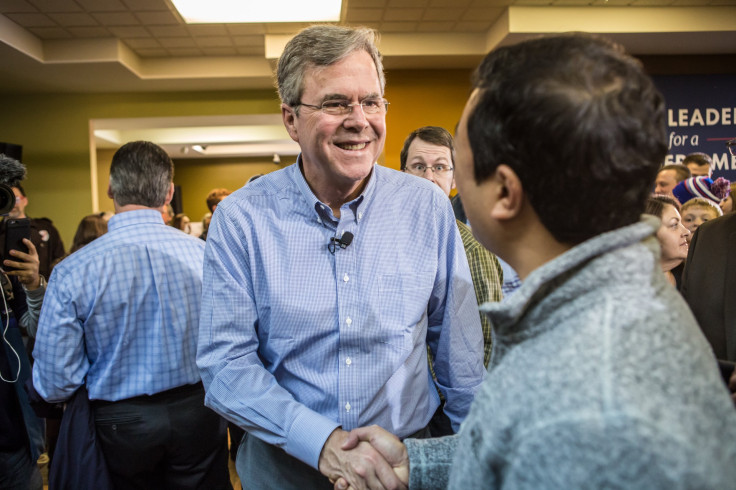Ahead Of Iowa Caucuses, Bush vs. Clinton The Ideal For Political Ad Agencies; Firms Prefer Establishment Candidates

When conventional wisdom holds true, political advertising — especially local TV spots — plays a vital role in deciding presidential elections. So, it may not be surprising that when many of the largest political advertising agencies were surveyed, the candidates they deemed best for business were former Florida Gov. Jeb Bush and former Secretary of State Hillary Clinton, the establishment candidates most likely to uphold and operate based on that conventional wisdom.
A new survey of national political ad agencies by ad tech firm STRATA concluded that a Bush vs. Clinton general election would be the most profitable combination of all the current candidates, based on anticipated ad spending. Of the surveyed firms, 44 percent named Bush as their Republican candidate of choice, while Clinton was the unanimous choice on the Democratic side. Sen. Marco Rubio of Florida was a distant second to Bush with 28 percent. Current Republican presidential front-runner Donald Trump trailed Rubio with 22 percent, good for third among Republican candidates.
The reasons for the Bush-Clinton preference are no big secret. Bush holds the overwhelming majority of super PAC money among Republican candidates and has been a big spender — the candidate had dumped more than $26 million into television ads alone and $35 million in political advertising in general by mid-December. Meanwhile, Trump continues to display an ability to command both media and public attention via nontraditional means, such as his decision to boycott a recent Fox News debate, a stunt that cost the candidate nothing.
“It’s not that surprising that, from a pure business perspective, political advertising agencies would like to see a Clinton-Bush matchup,” said Judd Rubin, vice president of STRATA. “But the story is Trump and his command of the earned media game. We’ve never seen anything like it and we may never see it again. After this campaign, there will be college courses examining Trump’s uncanny ability to demand media attention and his use of Twitter.”
Over on the Democratic side, the story is similar. As long as Sen. Bernie Sanders of Vermont is committed to avoiding super PAC money and pulling exclusively from individual contributions, Hillary Clinton’s pool of potential funds for political advertising will be exponentially larger.
However, the success of nonestablishment candidates like Trump has forced Bush to deviate from traditional strategy. Seeing little return on his investment in TV spots in Iowa, Bush’s campaign decided to pull $3 million in ads scheduled to air in the state, as well as South Carolina, in order to reinvest those funds in his New Hampshire ground game.
So, Bush might be pumping less money into the political advertising machine as he would have been in a more conventional primary race, but come time for the general election, he is still the ad agencies’ man. The question facing Iowa caucusgoers Monday and the country at large down the road is whether they feel the same.
© Copyright IBTimes 2024. All rights reserved.






















